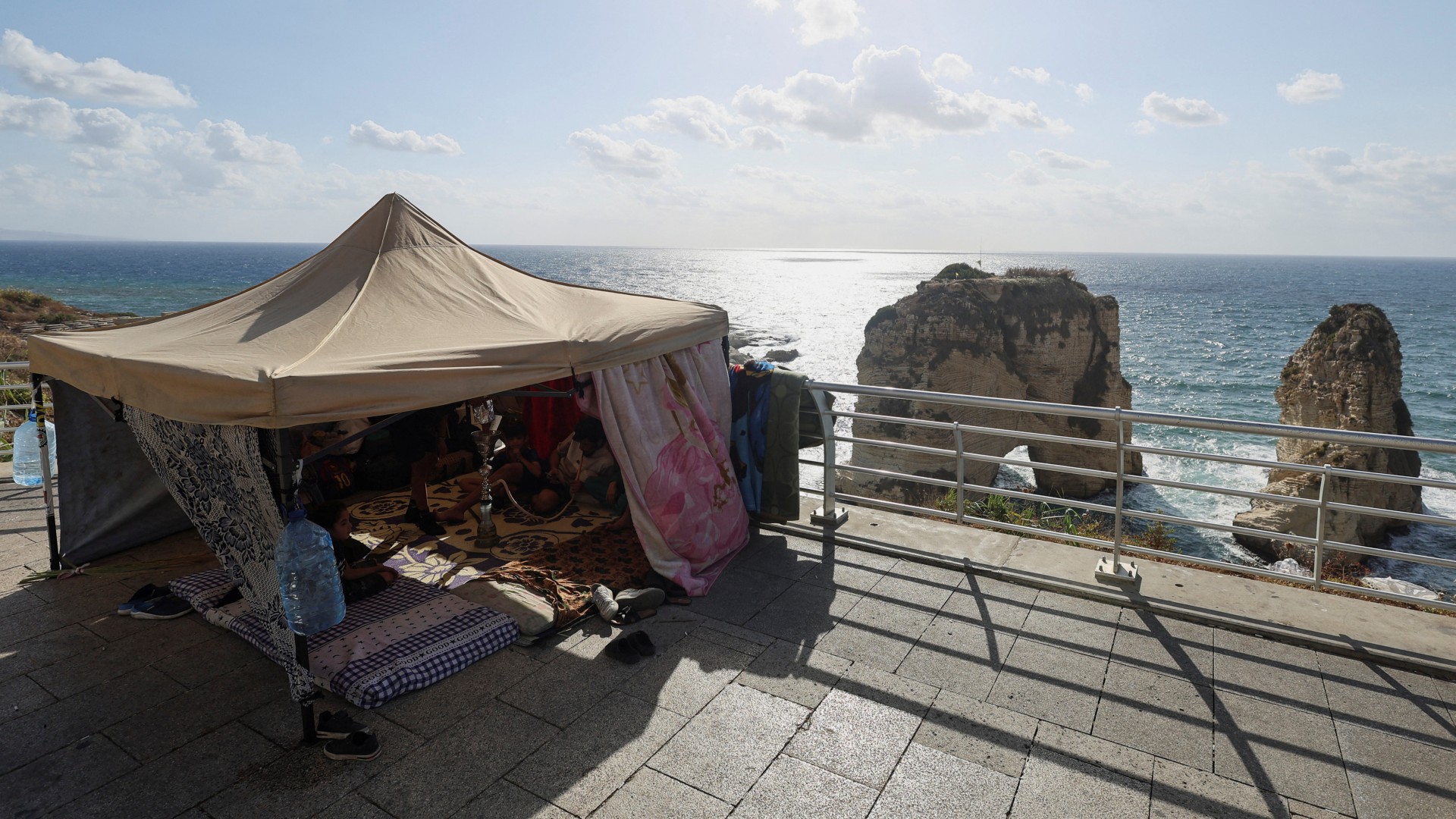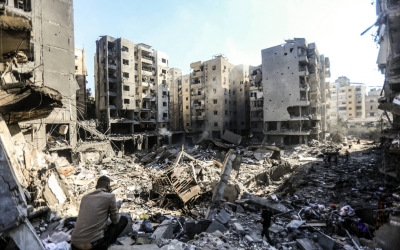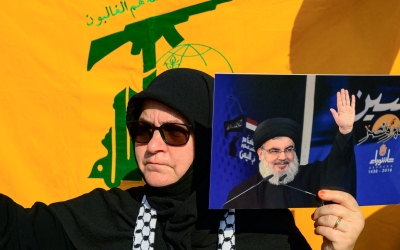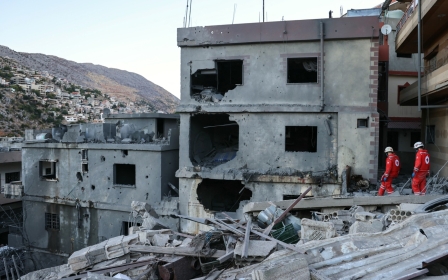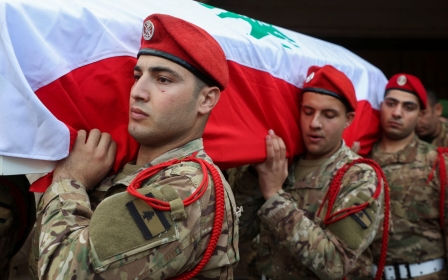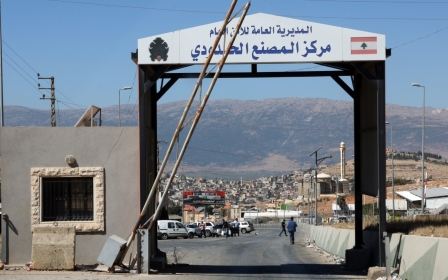Syrian refugees flee Lebanon for Kurdish and Turkish-controlled parts of northern Syria
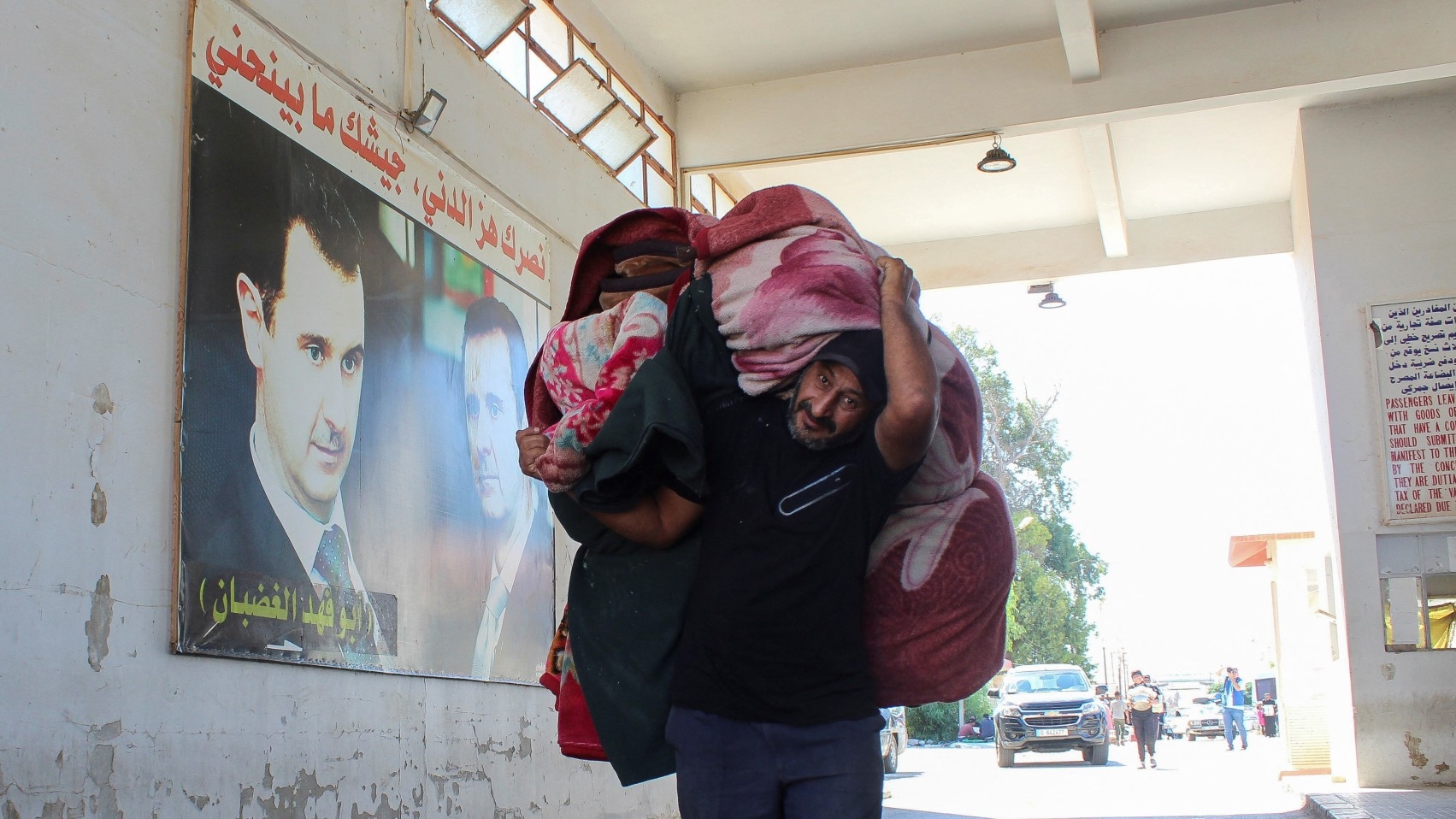
Israel's war on Lebanon has forced thousands of Syrian refugees to flee to different areas in northern Syria outside the control of Bashar al-Assad's government.
The Lebanese government has estimated that some 310,000 people, most of them Syrians, have fled the country since Israel began its onslaught targeting Beirut and southern Lebanon last week.
Footage circulated widely on social media last week showed hundreds of families, including women and children, stranded at a border checkpoint between rebel-held and Syrian government territories. According to activists, humanitarian organisations and displaced families, many of these people had been forced from the same area years ago during Syria’s deadly conflict, which erupted after the 2011 uprising.
“These people are mostly from this region,” one activist told Middle East Eye. “They fled when their homes became a battlefield, and now they are returning only to face another crisis.”
The number of people who have fled Lebanon so far already surpassed the 250,000 who escaped the country during the 33 days of conflict with Israel in 2006.
New MEE newsletter: Jerusalem Dispatch
Sign up to get the latest insights and analysis on Israel-Palestine, alongside Turkey Unpacked and other MEE newsletters
Over 16,500 of those displaced have sought refuge in Kurdish-majority areas in the northeast, while another 2,000 have fled to regions controlled by Turkish-backed rebel forces, according to Shafak, a humanitarian organisation based in northern Syria.
Shafak interviewed approximately 47 returnees and said they were mostly Syrians from rural Idlib (Sarmin, Bennish, Jabal al-Zawiya), northern rural Aleppo and rural Hama.
Some returnees hailed from Assad-controlled areas, such as Aleppo and Damascus, but opted to head to northwestern Syria, believing it to be safer, Shafak said in a briefing.
Extortion at crossings
Shafak reported that the refugees entered Syria through several crossings, including al-Masnaa, al-Dabousiyah and al-Arida, with their final destinations being Idlib, northern rural Aleppo and the Atmeh camp.
During their journey, they were subjected to extortion and exploitation from various parties. Some of their personal belongings, such as mobile phones, were stolen and their IDs were confiscated at some checkpoints.
'I had to explain that I am a Syrian, not affiliated with Hezbollah or any Lebanese militant group'
- Jassem al-Kaddor, Syrian refugee
According to Shafak, the fleeing Syrians were stranded for three days without shelter between areas controlled by the Syrian Democratic Forces (SDF) areas and Assad's government. They were subjected to insults and verbal abuse at checkpoints when passing through areas controlled by both sides.
Jassem al-Kaddor, one of the displaced, told MEE that he was interrogated by masked rebels at the checkpoint. “I had to explain that I am a Syrian, not affiliated with Hezbollah or any Lebanese militant group,” he said.
Local sources and Shafak reported that many refugees were forced to leave their identity documents at rebel checkpoints before being allowed entry. Those documents were subject to further security checks.
Kaddor, who uses a pseudonym for his safety, said some were forced to leave relatives behind in Lebanon, particularly young men who feared conscription into the Syrian government’s army if they returned.
He added that they suffered extortion at crossings.
“First, we had to exchange $100 at the Syrian-Lebanese border,” Kaddor explained. “That should be about 1.5m Syrian pounds on the black market, but they gave us only 1m Syrian pounds at the government exchange rate.”
Despite the heavy toll, he said he had no choice but to pay in order to secure his return to northern Syria.
The refugees, seeking sanctuary from Lebanon’s deepening crisis, either settled with relatives or were hosted by local residents.
In a policy introduced by the Syrian parliament in 2020, Syrians are required to exchange $100 at the border upon reentry to support the country's treasury with foreign currency. However, on 29 September, the Council of Ministers temporarily suspended the rule, allowing Syrians to enter the country without exchanging the $100 for a week.
Ali al-Sheikh, a civilian who hosted a displaced family in Idlib, expressed his frustration. "It is clear that the Syrian regime has built a fortune on the misery of displaced people. Many were seen in northern Syria with their children barefoot," he told MEE.
Kaddor shared his experience. "After exchanging the money, we were told there would be an additional security check, but it was implied that it could be sped up for a fee. I paid to avoid hours of waiting or false accusations," he said.
"At each of the countless military checkpoints on the way to the rebel-held area, we had to pay. They would ask us things like: ‘What have you brought us as a gift from Lebanon?’ In total, I paid about $300."
In a country where the minimum wage is around $19, paying $300 is an overwhelming burden for ordinary Syrians. The ongoing war has displaced about 13 million people, according to the UN, with half seeking refuge in neighbouring countries. Lebanon, which has been grappling with its own economic and security crises, is home to an estimated 1.5 million Syrian refugees.
Meanwhile, northern Syria, reshaped by the war, has now become home to 5 million people, including 3.9 million internally displaced and 1.9 million living in camps and informal settlements, according to UN agencies.
“The local city councils in northern Syria are preparing for a potential new wave of displaced people,” said Shafa Sabouk, media manager of Shafak. Sabouk shared a six-page document detailing the emergency measures the organisation has taken, including interviews conducted last week to assess the needs of the displaced.
UN-affiliated groups estimate that since 23 September, around 285,000 people have fled Lebanon due to the ongoing conflict, which has resulted in about 1,700 deaths and 10,000 injuries.
Turkish concerns
Omer Ozkizilcik, a regional analyst at the Atlantic Council, said that the influx of refugees to northern Syria could be viewed as a security risk in Turkey.
“This development is a clear sign that if a massive refugee wave begins in Lebanon, they will mostly head towards the Turkish border in Syria,” he said.
“As anti-refugee sentiments are on the rise in Turkey, this development forecasts that a military escalation in Lebanon will have ramifications beyond its borders and may threaten Turkey's national security,” he added.
Ozkizilcik explained that the safe zone established by Turkey in Syria already has a population of 5.5 million, a significant increase from its pre-war population of 1.5 million. Unless the safe zone is expanded, it cannot accommodate another wave of incomers, he said.
Halid Hoca, a Turkish-Syrian politician and former chairman of the National Coalition of Syrian Revolution and Opposition Forces, said successive Lebanese governments have unsuccessfully tried to return Syrian refugees through an agreement with Assad.
“Assad has refused to take back his own citizens, except for the opposition members sought by the regime and handed over to him,” he told MEE.
Hoca warned that northern Syria is not equipped to receive a large influx of refugees.
“If the war progresses and spreads to Syrian territory, it is inevitable that the region will become a demographic bomb,” he told MEE.
“We should be ready for this possible scenario now, considering that the region lacks all kinds of infrastructure.”
Middle East Eye delivers independent and unrivalled coverage and analysis of the Middle East, North Africa and beyond. To learn more about republishing this content and the associated fees, please fill out this form. More about MEE can be found here.


